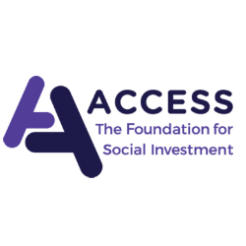Intermediary organisations will be invited to apply for and disburse the Access Foundation’s £60m pot of investment-readiness funding, according to the funder’s latest strategy announcement.
Access, the Foundation for Social Investment, had previously earmarked its £45m Growth Fund, which will provide loans and grants to early-stage charities and social enterprises, to be administered by social investment finance intermediaries (SIFIs).
However, no decision was made on how its investment-readiness fund, which will provide grants of up to £150,000, would be allocated, leaving open the possibility that Access would give the grants directly to charities.
Now, in a newsletter sent out last week, Access has said that consultation responses made clear that charities and social enterprises “don’t know where to turn to access social investment”. Therefore, it wants intermediaries around the country to offer the funding to charities.
The intermediaries administering this fund may or may not be SIFIs, but those that are would have the advantage of being able to offer charities both of Access’ forms of funding, meaning they can support organisations “whether they are investment ready now or whether they need some support to become ready”.
Grant administrators to face rigorous approval process
Speaking to Civil Society News, strategy and policy manager Ed Anderton acknowledged that some of the money will therefore go towards intermediaries’ running costs, but emphasised that Access will be working hard to make sure successful applicants offer a lean and effective grants programme.
“We’re deliberately stirring up some tensions and crunch points here about how that organisation or partnership will demonstrate that they’re being objective, consistent and fair about how their decisions are being made.
“One of the tests that we’re certainly conscious of is does this look a little bit too convenient in terms of them being able to allocate chunks of grants to themselves or their friends.”
He added: “We’re not excluding the possibility that that organisation can deliver some of the capacity-building work themselves, which would mean they would be allocating grant money to themselves to deliver work.
“However, in that scenario we would put the maximum pressure on them to be incredibly transparent and clear about why they are best placed to deliver it.”
CFG questions SIFIs’ sustainability
Responding to the announcement, the Charity Finance Group’s head of policy and public affairs Andrew O’Brien said he was concerned that Access is allowing SIFIs to administer grants in order to support their financial health, and that this will not make them sustainable for the long term.
“Ultimately,” he said, “they should be generating capacity-building funds out of their own resources, and if they’re not sustainable in doing that, then they’re not working effectively.”
He added: “It’s funny, when charities are unsustainable they tell us to merge and there’s too many of us. When it’s 30-odd SIFIs, they try to find every way to keep them going.”
SIFIs to receive own investment support
In addition to utilising this “ecosystem” of intermediaries to deliver its funding, the Access newsletter revealed three other strategic themes.
These are to support impact measurement and reporting, provide educational materials on social investment, and to build the capacity of SIFIs by providing long-term “patient” loans.
Around 10 per cent of Access’ grant fund is being set aside for the latter, which was one of Access' founding objectives, and work will begin on this “later in 2016”.










